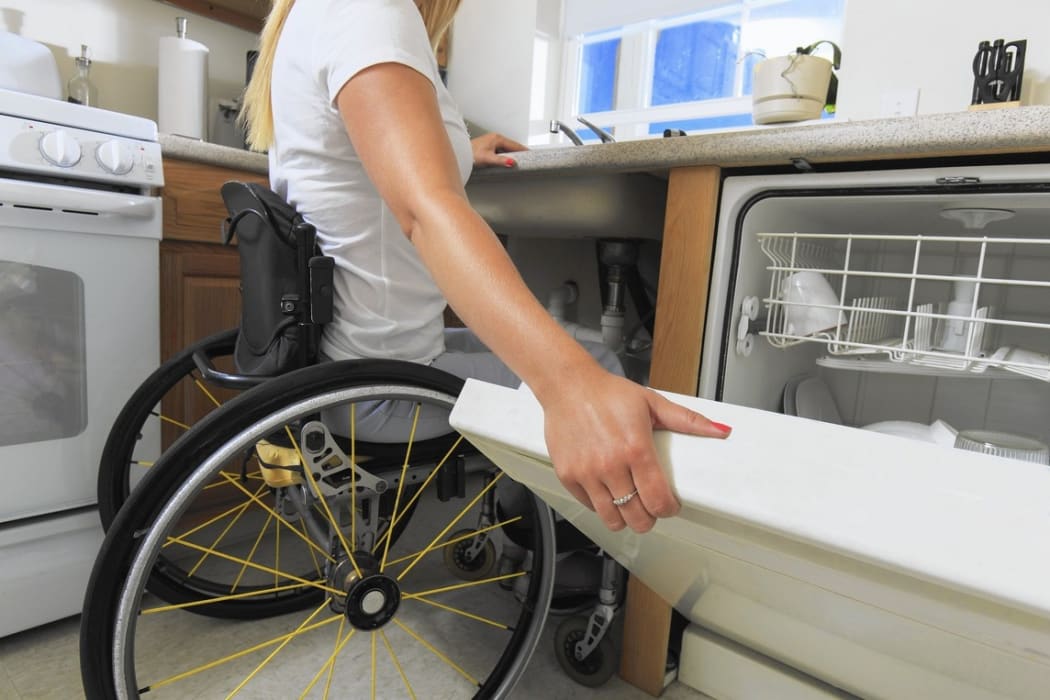People with disabilities struggling to find homes in the tight rental market want the government to set aside social housing especially for them.

Photo: Supplied
An IHC survey has found high levels of concern among parents of intellectually disabled people about housing, and another support group says nothing has happened since it highlighted the problem 16 years ago.
Auckland group Disability Connect is calling on the government to earmark a portion of suitable rental homes to live up to their policy of encouraging disabled people to leave home and live in the community.
It said disabled people are usually not a landlord's first pick, and restrictions on the types of houses needed and a lack of supply - especially in Auckland - were driving more people to apply for social housing.
Wheelchair user Rachel Peterson, a solo mother with two children, told Nine To Noon she spent four years looking for suitable accommodation after her marriage broke up, but was eventually forced to move into a private rental house in Warkworth.
She said she applied for more than 20 rental homes, and despite a "perfect rental history", failed to find anything suitable.
"I had glowing references from my current landlord who appreciated my physical situation and just got turned down again and again.
"I had landlords say to my face it was an impossible situation - 'a disabled mum in a wheelchair, how can you pay the rent?'."
She said landlords were also worried that her wheelchair could damage the house, and that they would have to wait for her to get clearance to move into a new house from Work and Income.
Ms Peterson said the move to Warkworth meant she had to commute into Auckland for work, rehab and her children's' schools every day.
"It's very, very expensive and exhausting commuting with three kids every day."
'They just want to be self-determining people'
Disability Connect chair Colleen Brown, who cares for her adult son with Down syndrome, said housing was pinpointed as a concern in 2001 when the government's disability strategy was first launched, long before the current housing crisis.
She said the issue with going on the list for social housing was that the first question asked was where the applicant was currently living, and because many disabled people were still living with their parents, they were deemed not to be in a crisis situation.
"They just want to be self-determining people, and they don't even get past the first line.
"You go to social housing, whether through the government or an agency, and you just don't get anywhere, because the situation you're in is not deemed bad enough."
She said one of the main issues with changing the system was that several government agencies - including the Ministries of Health and Housing - needed to talk to each other, and they were not.
"I can't understand how the Ministry of Housing can go down a track of encouraging them to live their own lives in the community, and yet there is nowhere really for them to go. Where is the overview of what should be happening here, and there is no minister taking responsibility.
"There has been a problem for years and years and years, but there has been no plan."
'Empty and cruel' promises for independent living
IHC director of advocacy Trish Grant told Nine to Noon people with intellectual disabilities needed good support to live independently, but promises to help disabled people to live that way were "empty and cruel".
"If you haven't got housing, if you haven't got good support, you're heading down that path of compounding disadvantage and lack of well-being."
She said disability advocates were very interested in the new government's plans for a housing commission, and she hoped to see the government partner with more social housing groups to make more independent living possible.
"We need a whole range of stock so people have choice about where they live and with whom they live."
Erin Gough, a disability-focused human rights specialist at the Human Rights Commission and wheelchair user, said the rental situation in Wellington did not sound as bad as Auckland, but she knew she was fortunate to have a full-time job and could afford to rent in the central city.
She said her accommodation was manageable, although she still struggled with the bathroom set-up and could sometimes be left stranded if the building's lift broke down.
She said the situation had got so bad she had heard of parents who have had to buy a house and renovate it themselves to make it suitable for their disabled children.

